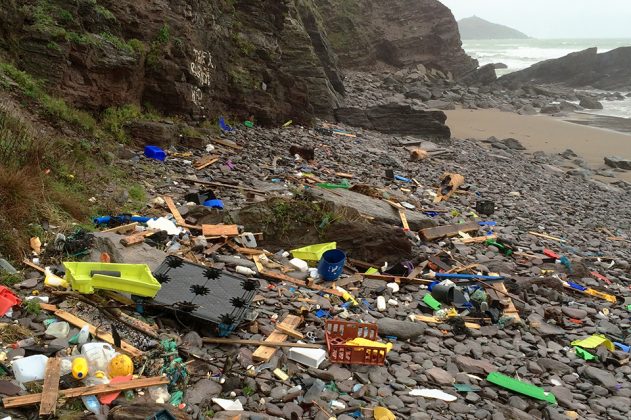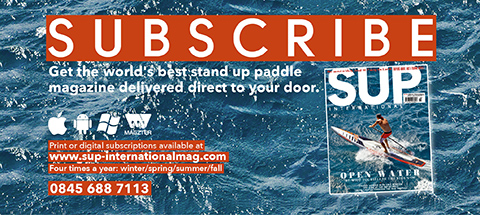THE PEOPLE VS PLASTIC #1 –
THE STATE OF UK WATERS
With – Cal Major
It’s summer, your paddle hits the turquoise, glassy water and creates gentle concentric ripples on its surface. There’s a colony of inquisitive seals on the rocks up ahead, clumsily belly-flopping into the sea one by one, disappearing into the water then poking their Labrador-like heads up to investigate these strange beings standing on water. The sun is on your face and your mates are laughing next to you. A plastic bottle floats past. Your paddle tangles in a piece of discarded fishing rope. The sunlight, dancing on the water, highlights thousands of small multi-coloured fragments. Once you notice it, you start to see it everywhere – whether floating on the surface of the ocean or at the beach you stop at for lunch. I’m talking, of course, about plastic pollution.
But environmental awareness doesn’t all have to be doom and gloom, particularly as plastic pollution is a problem we all have the power to help alleviate. As ocean lovers I strongly believe it is our duty to have our nose to the ground on the issues that are affecting our beloved playground, and to do what we can to help protect the oceans and the creatures that inhabit them, and which provide us with so much fun and enjoyment.
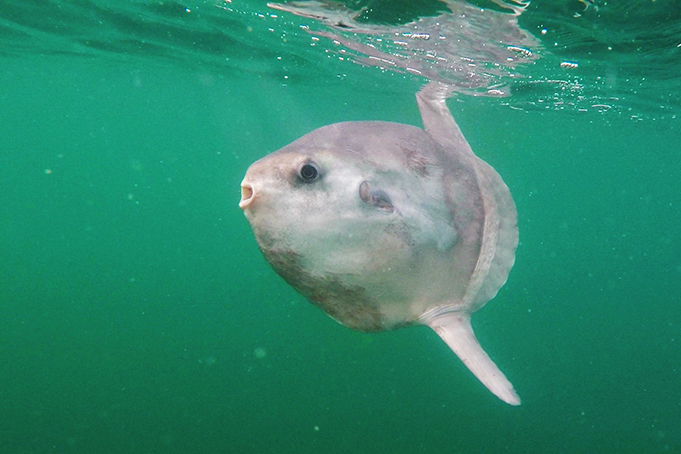
In this three-part series, I’ll be discussing the state of the UK waters in terms of plastic pollution, why it matters, where the plastic is coming from, and what we can all do about the problem simply and positively. I hope to enlighten you to the problem, but moreover to empower you to make positive change and find pride in protecting what you love. There is an incredible movement gaining momentum and voices across many disciplines, advocating solutions to the marine litter crisis, and as paddle boarders we are well placed to be a big part of this voice. In each article I’ll be suggesting step by step, simple ways of how we can all be part of the solution.
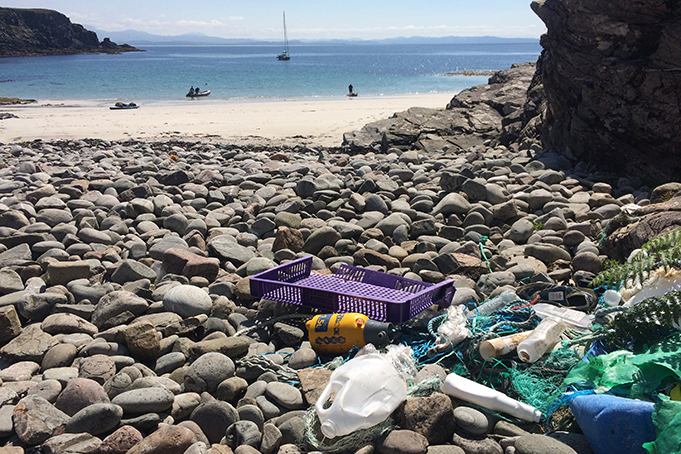
So firstly, let’s look at the issue at hand. What is the marine litter crisis? It’s a global problem: 5.25 trillion pieces of plastic waste are currently in the oceans, increasing by a further 8 million individual pieces each day. It is estimated that by 2050 there will be more plastic in the ocean, by weight, than fish.
While we are incredibly lucky in the UK to have such expansive and varied coastline and inland waterways to paddle on, plastic pollution here is ubiquitous.
Take any beach in the UK and you will find it: Brightly coloured eye-sores lining the beach, plastic bottles which average 159 per mile of coastline, or less obvious fragments muddling together with the seaweed on the strandline. Some smaller plastic particles hide amongst the sand, others stand more obvious – pieces of rope, cotton bud sticks or crisp packets; a constant reminder of our throwaway society. Inland waterways, often leading directly into the sea, are lined with plastic bags and bottles: items of convenience from lives seemingly disconnected from the oceans.
In 2016, the severity of the issue really hit home while in a bid to highlight the issue of plastic pollution, I set off on a 300 mile SUP expedition around the Cornish coast from Plymouth to Croyde. There were coves that were inaccessible by land, harbouring hundreds of plastic bottles. Beaches I would paddle past that were visibly multicoloured even from the water. Plastic bottles floating in the sea, fishing rope and plastic bags not even 50 metres from where I’d seen a sunfish or a pod of dolphins. I thought I knew the extent of the problem, but realised I had only scratched the surface. We had a fight on our hands, but fortunately the solutions were shouting loud and clear.
Wherever I paddle, whether on a river in Devon, the ocean in Scotland, or a canal in Manchester, plastic pollution is ever evident.
“The oceans produce more than half the oxygen we breathe on Earth: they are full of exciting and beautiful creatures, all making up these ecosystems that sustain life.”
But why should we care? It’s unsightly, but we can get past that when riding a perfect wave, or darting through otherwise glassy water. It’s the harm that plastic pollution in the ocean is causing on a larger scale that is the reason it needs addressing.
A plastic bottle in the environment takes 450 years to break down, gradually fragmenting into smaller and smaller ingestible pieces, leaching toxic chemicals and carcinogens along the way. The oceans produce more than half the oxygen we breathe on Earth: they are full of exciting and beautiful creatures, all making up these ecosystems that sustain our life. We cannot afford to be destroying them at the rate we are, for something as ludicrous as a piece of plastic that is used for seconds and then discarded. With over one million sea birds and 100,000 marine mammals dying every year as a result of plastic pollution, that convenience to us can mean life or death to a vulnerable wild animal. We can help stop this.
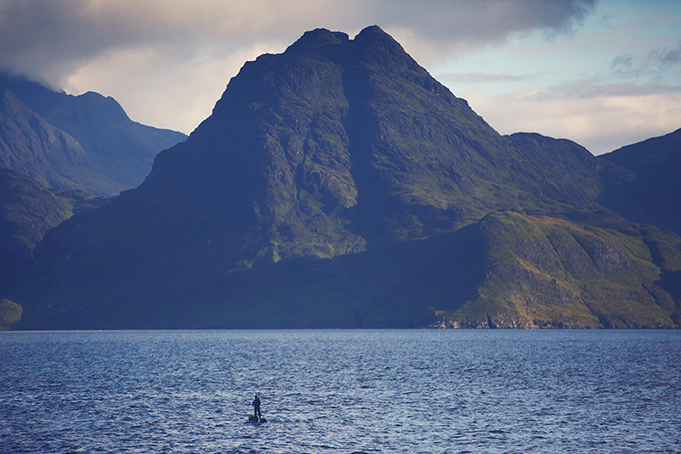
It’s time we all stood up and said “Actually, I’m not okay with this, and I want to be part of the solution”. This crisis is reaching a tipping point, whereby if we continue adding to the volume of plastic in the ocean the way we are, soon we won’t have a planet that can sustain our life on Earth. But the other tipping point that is emerging is the coming together of industry leaders and passionate grassroots activists, creating positive change that not only stops additions to the 5.25 trillion pieces of plastic in the ocean already, but is looking at inventive ways to reverse the damage that has already been done. The solution is two-fold: removing what is already littering the planet, but, perhaps more crucially, halting the continued overproduction and overconsumption of plastic that has caused the issue in the first place.
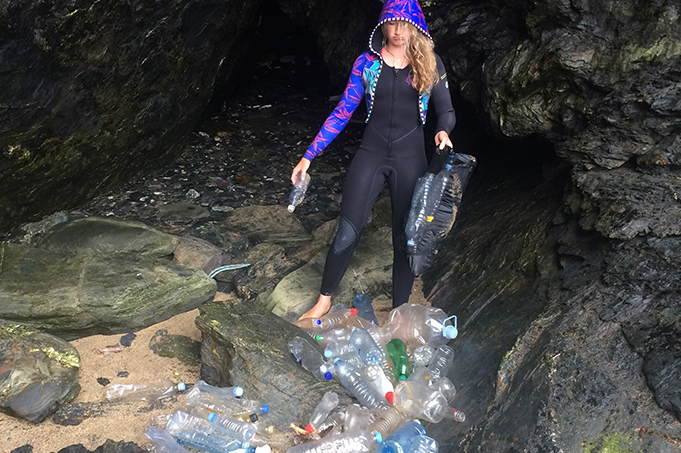
As Stand up Paddleboarders, we are well place to notice this stuff and act as sentinels for the emergence of new threats to our waterways. It can seem like a very overwhelming task at hand, but know you’re not alone in caring about this issue, and that individual actions can have a huge effect. Here are the first simple steps you can take on your journey to doing so:
1. Start noticing. Notice what plastic you are finding at the beach and in the water.
2. Next time you’re paddling or surfing, pick up a few pieces of debris from the beach or the water on your way back in: this is a great way to notice what you’re finding, but also a really powerful action to physically protect animals from those pieces of litter that you collect.
3. Organise a beach clean – this doesn’t have to be a community or public clean, just a mini clean with your family or a few mates. Spreading the awareness is key to creating a larger voice of people who care about this issue. I promise they’re more fun than they sound, and surprisingly satisfying!
4. Organise a social paddle and pick up with friends or your local SUP club – have a bucket on the front of your board and collect what you can. Inland waterways are often bursting with debris, and since many of them lead straight to the ocean, anything you collect here will help reduce what ends up lost at sea.
5. Stop buying plastic water bottles. Buy a refillable water bottle and get into the habit of using this instead, and asking for refills when you need them. More on this next time.
If you need any help or advice on how to organise a SUP or beach clean, please feel free to contact me: paddleagainstplastic@gmail.com SUP
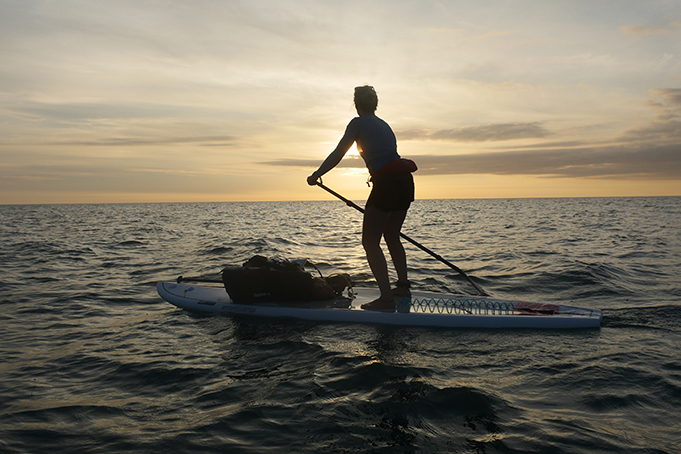
NEXT TIME: Where does marine litter come from, and how can we help to stop the problem at source?
Join The Resistance: visit www.plasticfree.org.uk
Speak to Cal at Instagram @paddleagainst plastic, FB /paddleagainstplasticuk and Twitter @paddlevsplastic

